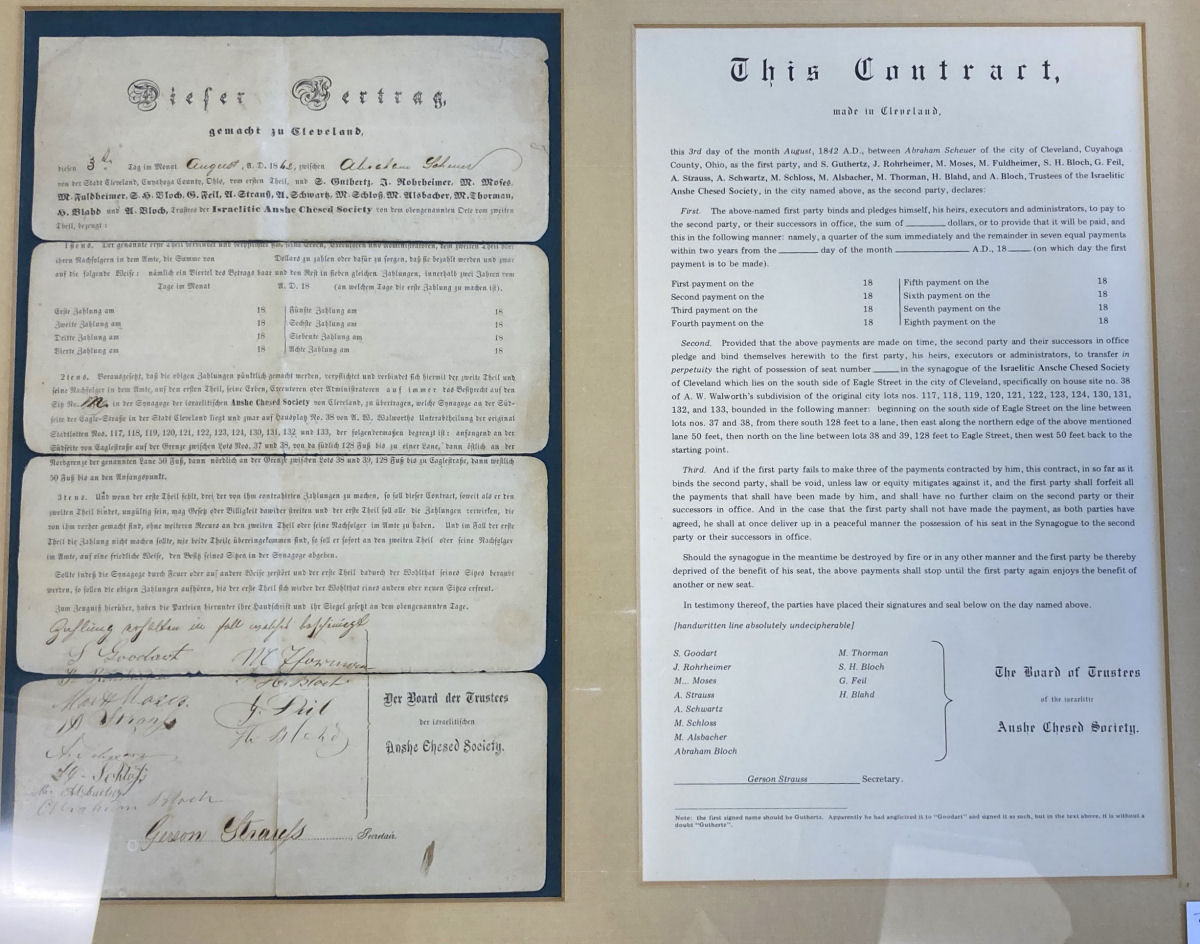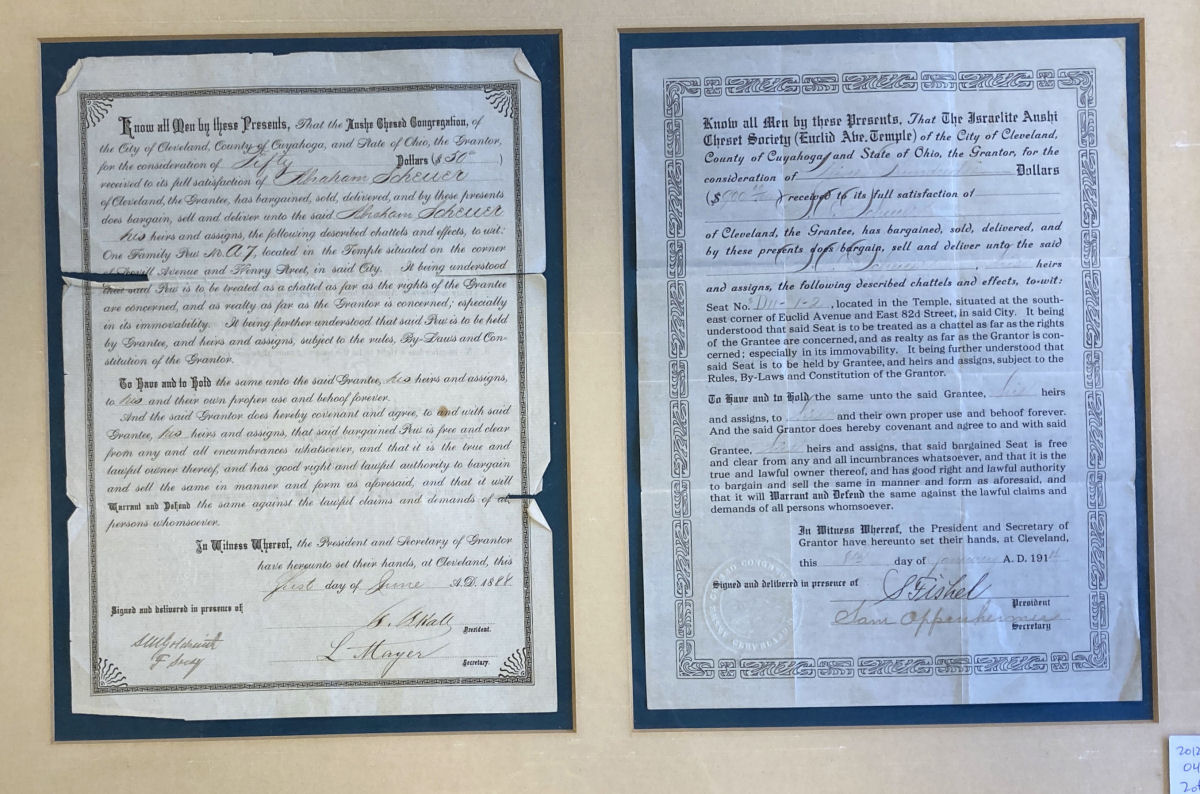|
|
Seat Licenses for the Synagogues of Anshe Chesed |
|
The family of Abraham Scheuer (born in Germany in 1824, died in Cleveland on August 26, 1890) saved and then framed three seat license documents for Congregation Anshe Chesed, today Anshe Chesed Fairmount Temple. They are now in the Jewish Archives of the Western Reserve Historical Society. These treasures were gifts of Shirley Stein Aaronin in 2012; Anshe Chesed Fairmount Temple in 1998 and 2002; and John and Mary Ann Hexter in 2012.
|
|
||
 |
||
|
Below left 1888 license for $50. to Abraham Scheuer; for family pew A7 at the new sanctuary at Scovill Avenue and Perry (later East 25th) Street. (Family pews had been adopted in the 1870s.) Anshe Chesed then became known as the Scovill Avenue Temple. |
Below right 1914 license, probably to Samuel Scheuer, the only son of Abraham Scheuer, $900, for two seats in row D-11 in the sanctuary on Euclid Avenue and East 82nd Street. Anshe Chesed then became known as the Euclid Avenue Temple. |
|
|
|
||
|
More about seat licenses The 1842 contract asked our first Jewish settlers, here only a few years, for a pledge to be paid over eight years. Later contracts show the economic progress of many members, for they ask for full payment.
The Temple-Tifereth Israel, Cleveland's second-oldest
congregation. also used seat licenses in its sanctuary in
University Circle (1924). The seats in front of the reader's
desk on the bimah, where Rabbi Abba
Hillel Silver presided, were
"owned" by its most wealthy families. They
attended the evening service that began each Holy Day, but
many did not come to services the next morning. I remember in the late
1950s, about ten minutes after the morning service had
started, ushers telling some of us waiting to enter the sanctuary, "More seats will be available soon."
The rabbi, one of great orators of his day, not wanting to
speak to empty seats, had told the ushers when they could
let others occupy those seats. |
| See our pages on: |
